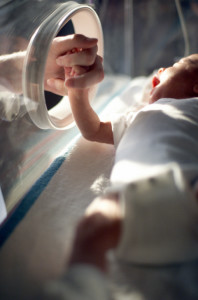Bereaved Parents Demand Justice for Son
 After the loss of their newborn son, parents from New Jersey have filed a wrongful death lawsuit. It is proceeding in the U.S. District Court for the District of New Jersey. The complaint lists multiple healthcare providers as defendants, including obstetricians, residents, interns, and nursing staff. The lawsuit also names as defendants multiple healthcare facilities, including Inspira Medical Centers, Inc. and Rowan University School of Medicine.
After the loss of their newborn son, parents from New Jersey have filed a wrongful death lawsuit. It is proceeding in the U.S. District Court for the District of New Jersey. The complaint lists multiple healthcare providers as defendants, including obstetricians, residents, interns, and nursing staff. The lawsuit also names as defendants multiple healthcare facilities, including Inspira Medical Centers, Inc. and Rowan University School of Medicine.
The bereaved parents demand compensation for the severe emotional stress and mental anguish inflicted by witnessing the death of their son, which they claim could have been prevented had the defendants abided by the standard of care. They also demand compensation for hospital and medical expenses, loss of earnings, loss of earning capacity, loss of enjoyment of life, and the pain and suffering experienced by the deceased child. For each count listed in the complaint, the plaintiffs seek compensation in excess of $150,000 exclusive of interest and costs.
Mother endured prolonged, painful labor
According to the medical malpractice case, in early 2013, the mother was 27 years-old at the time that she began receiving prenatal care from the defendants. She was considered to have a high risk pregnancy because of multiple diagnoses, including pregnancy-induced hypertension, polyhydramnios, obesity, gestational diabetes controlled by oral medication, and large fetus for the gestational age.
On September 30, 2013, the mother was admitted to the defendant hospital for the induction of labor. The healthcare providers inserted a cervical ripening agent known as Cervidil. It was removed the following day. However, the first induction failed and the mother was instructed to return to the hospital on October 6, 2013 to attempt induction again. When she returned to the hospital, she was at 39 weeks gestation.
During the subsequent two days, many different healthcare providers administered multiple doses of various medications, including Pitocin, which is a drug intended to induce contractions. The medical records note her as being in significant pain and discomfort throughout much of her labor. Despite her labor lasting an abnormally long time, the healthcare providers allegedly elected to monitor for signs of fetal distress, rather than perform an emergency C-section.
It wasn’t until two days into the labor that the attending staff finally performed an emergency C-section.
Baby found to be non-responsive
When the baby was born via C-section, he was immediately transferred to a radiant warmer, and he required resuscitation and an endotracheal tube. The baby was found to have suffered from meconium aspiration. The medical records indicate that the NICU nurse found the baby to be ” mottled, pale, acrocyanotic, skin cool, sutures overriding, molding, caput succedaneum, weak femoral pulses, capillary refill more than 3 seconds, no movement of extremities, hypotonic, no cry due to intubation, decreased temperature, hyperglycemia, no respiratory effort, non-responsive and lethargic.” The baby was diagnosed with neonatal encephalopathy, suspected sepsis, seizures, and severe metabolic acidosis, among other health problems.
The baby was transferred to another hospital, where he suffered repeated convulsions and persistent respiratory failure. On October 11, an EEG demonstrated that there was no brain activity. Two days later, as per the physician’s recommendation, the grieving parents made the decision to remove life support. The baby died in his parents’ arms.
- American Pregnancy Association, Prolonged Labor, http://americanpregnancy.org/labor-and-birth/prolonged-labor-failure-progress/
- Epilepsy Foundation, Seizures in Newborns, http://www.epilepsy.com/learn/seizures-youth/about-newborns-and-infants/seizures-newborns

 Resources
Resources
 Resources
Resources

